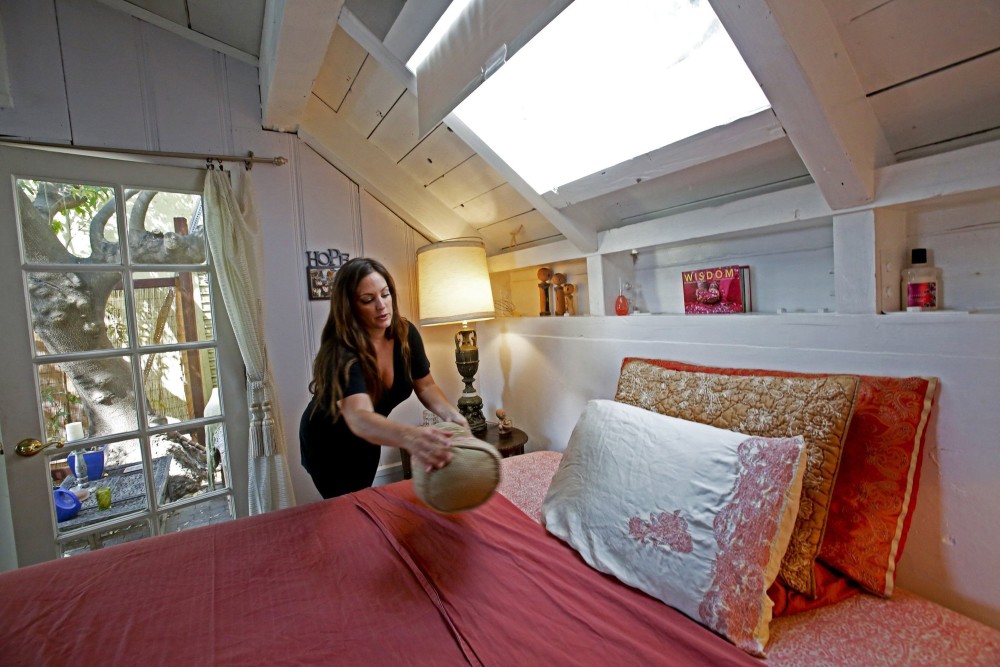By Carolyn Said
San Francisco Chronicle.
Thousands of San Franciscans have transformed their homes into impromptu inns using Airbnb, the website that lets people rent rooms or houses to travelers.
These short-term rentals haven’t been an easy sell to landlords, housing activists and others who say they flout the law, violate leases, remove scarce housing stock, drive up rents and annoy neighbors. But the scale of Airbnb’s impact on San Francisco has been hard to measure — until now.
Although the company refuses to release numbers, a data analysis commissioned by The Chronicle found almost 5,000 San Francisco homes, apartments, and private or shared rooms for rent via Airbnb.
Two-thirds were entire houses or apartments, showing how far Airbnb has come from its couch-surfer origins, and contradicting its portrayal as a service for people who rent out a spare room and interact with guests.
And 160 entire homes or apartments seem to be rented full time, giving weight to arguments that the service is allowing landlords to flout strict rental laws.
Connotate Inc., a Web data harvesting firm, compiled the data from Airbnb’s website on May 19.
“In a city that has chronic housing shortages, the number of Airbnb homes that appear to not be available on the rental market is significant,” said Laura Teller, Connotate chief strategy officer.
Here is a breakdown of findings:
— How many rentals? Airbnb had 4,798 properties listed in the city. Almost two-thirds — 2,984 — were entire houses or apartments.
Of the remainder, 1,651 were private rooms and 163 were shared rooms. Dozens of shared spaces were in communal “hacker hostels” that offer crash space and a place to make tech-industry connections.
— How often? Critics fear that some Airbnb hosts run full-time hotels, thus reducing the city’s housing supply and changing the character of residential neighborhoods.
Connotate could not determine how often properties were rented out, nor if they were available on the date it harvested the data. But, like a bread-crumb trail, reviews left by visitors offer some insights on frequency of use. (Not all visitors write reviews, so this underestimates usage.)
About two-thirds of listings had fewer than 10 reviews, fitting Airbnb’s portrayal of occasional use.
A quarter had 11 to 50 reviews. Most properties have been on the site for only a couple of years, meaning that this group hosted up to twice a month.
However 6.4 percent — 307 listings — had more than 50 reviews, implying heavy or constant visitor traffic.
These popular properties included 160 entire homes or apartments, 140 private rooms and seven shared rooms.
— Who hosts? The bulk of San Francisco’s 3,785 hosts — 3,272, or 86.4 percent — had a single listing, buttressing Airbnb’s claim that most rent out their own places.
But the remaining 513 hosts control multiple properties.
When broken down by properties, the presence of these multiple hosts is more prominent.
A total of 1,526 properties — almost a third — are controlled by people with two or more listings. The top 10 hosts collectively controlled 248 listings.
Some of these multiple-listers were property managers handling Airbnb rentals on behalf of hosts who want to avoid the hassle; some were people offering two different rooms in their homes.
In New York City, a Connotate study found evidence of large-scale illegal hotels. The Chronicle didn’t find that. However, some hosts with multiple listings could be treating a handful of units as more-lucrative vacation rentals.
— What does it cost? Citywide, entire homes or apartments averaged $226 a night, private rooms $116 and shared rooms $80. Whole houses ranged from $337 a night in Cow Hollow to $125 in Visitacion Valley.
The priciest listing: a Pacific Heights mansion for $6,000 a night.
The cheapest: a shared downtown living room for $18.
— Where are the listings? Airbnb’s footprint spreads throughout San Francisco, ranging from the Great Highway to South Beach.
The Mission had 681 listings, the equivalent of two Marriott Union Squares. Western Addition/NoPa, SoMa and the Castro were also popular locations.
By contrast, the city’s 34,000 hotel rooms are heavily clustered; about 20,000 are within a short walk of Moscone Center.
Airbnb, valued at $10 billion — more than Hyatt Hotels or Wyndham Worldwide — says its business model, which helps regular people become “micro-entrepreneurs,” should not be regulated in the same way as hotels.
The company has grown rapidly since its mid-2008 founding. Two years ago, it had 1,800 San Francisco listings, a number that has almost tripled.
In fact, the number may have been higher just a few months ago. Many local hosts reportedly have removed listings after news of evictions and code violations.
San Francisco lawmakers now are tackling how to regulate Airbnb, VRBO, FlipKey and similar services, which violate the city’s ban on rentals of less than 30 days.
Supervisor David Chiu has introduced legislation to legalize the services while creating a stricter framework for their operations, including paying the city’s 14 percent hotel tax, something Airbnb says it will start this summer.
“From a policy perspective, the real issue is whether there are a lot of units that have been removed from the housing market because of short-term rentals,” said Gabriel Metcalf, executive director of SPUR, an urban design think tank. “It looks like that’s not a big number yet, but that’s what we need regulation to control so it doesn’t become big.”














































































































































































































































































































































































